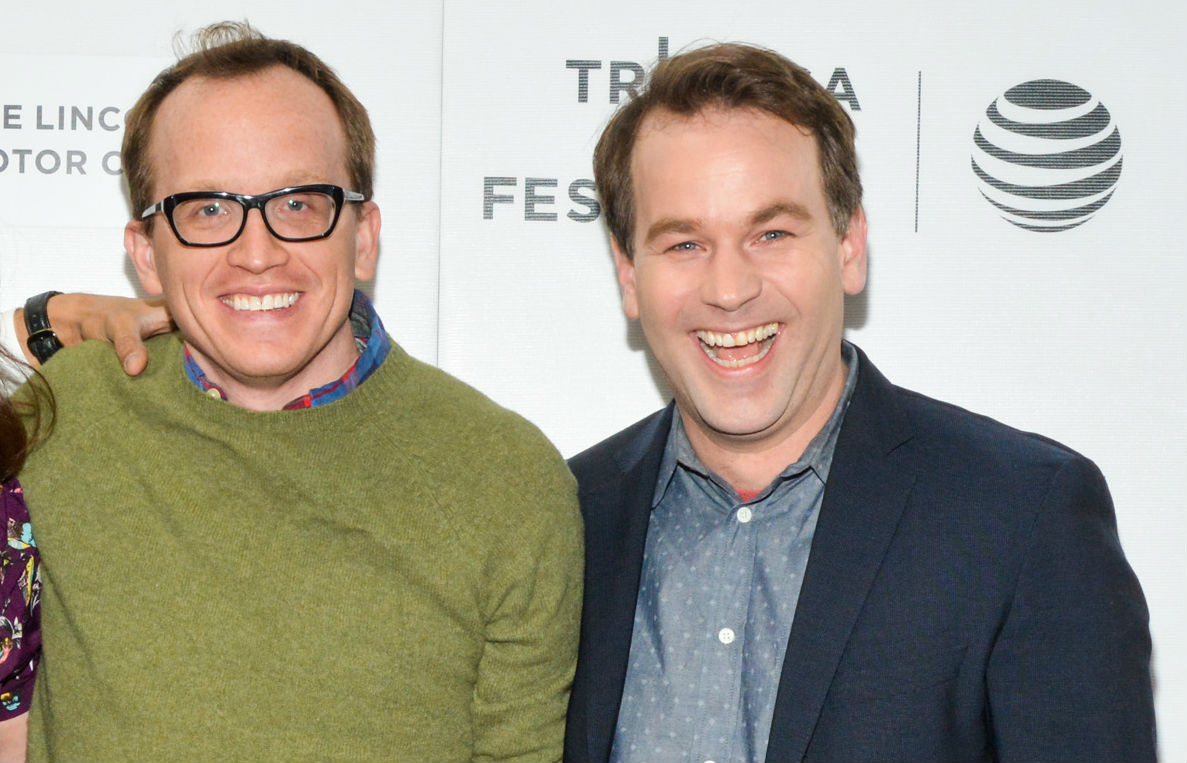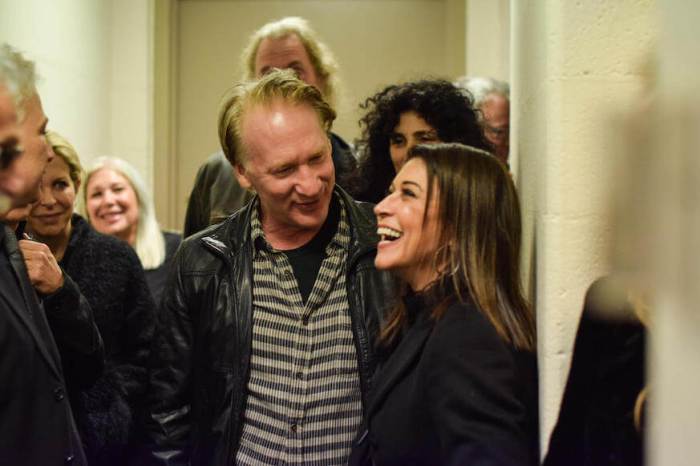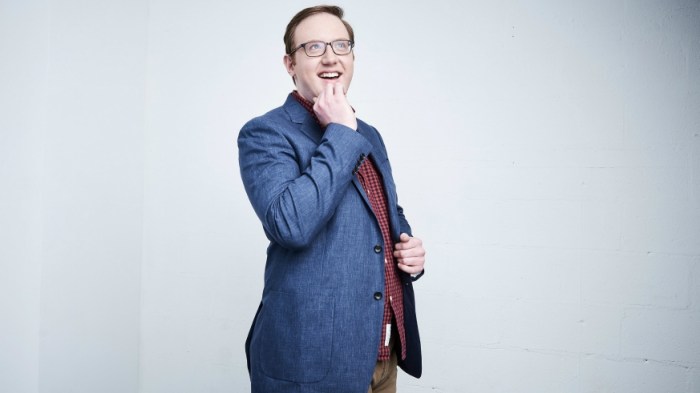“Saturday Night Live” greats are quick to tell you about their glory days of doing improv. Troupes like Second City (Tina Fey, Chris Farley), Upright Citizens Brigade (Amy Poehler, Horatio Sanz) and Groundlings (Kristin Wiig, Will Ferrell) should sound as familiar as their alumn who hit it big. But what happens to the troupe members that don’t make it to prime time? That was the difficult question that writer-director Mike Birbiglia explores in “Don’t Think Twice,” a comedy about a group of friends who do improv comedy together until one of them breaks big. Naturally, this causes some conflict. We chat with Birbiglia, who also stars in the film and his co-star Chris Gethard about the art of comedy and the unnatural art of filming natural improv.
In the improv classes in the film, you guys are constantly nailing in the point “don’t think twice,” which is clearly where the title came from. At what point did you really start to let go as comedians? Chris Gethard: To me, as an improviser, one of the most exhilarating parts is when you start getting laughs and you’re not sure why they’re laughing. When you’re in a scene and you’re just linking up with the other person on stage, and you forget that there’s an audience but you incidentally hear them reacting, that’s the freeing powerful moment. For me, that ties into that point when you just trust in your skills and you let the safety net go, it creates comedy that’s unexpected and can only exist right then in that moment. That’s the most addictive, powerful feeling in the world. Birbiglia: I think improv taught me more about directing film than any single book or teacher or class could. So much of directing is about listening and responding and collaborating and taking other people’s ideas and building on them. Films are roughly about 100 people working on the same vision, so you ultimately all have to contribute. And as a director, you have to take all these ideas and use what you need to execute a vision. It’s a lot of improving on the fly. How did you both start doing improv?
Gethard: When I got to college I found a group there, but I wanted find some way to keep it going during the summer because it was the only thing keeping me happy at the time. I was a very depressed young man. I started classes at Upright Citizens Brigade the week of my 20th birthday. It was the island of misfit toys, everyone was a weirdo and super creative and this was before UCB became the modern version of Second City. It was the place where I belonged. I always felt like an outcast and to show up where you’re in a theater and it doesn’t matter if you’re weird or young, if you’re funny and work hard, you can hang out. That was a life changer for me. Birbiglia:For me, when I was a freshman in college, I was cast into the Georgetown Players improv group. Charna Halpern and Liz Allen from ImprovOlympiccame to teach workshops, and I think Liz is probably the best improv teacher in the country. Those guys coming to Georgetown changed the way I looked at everything. After four years of improv in college, my group, Little Man, performed at UCB, which is how Chris and I met. Some real prompts and bits from your own improv experiences made it into the film. How did that work?
Gethard: I think Mike did such an interesting thing because it’s hard to film improv. By definition it’s something that’s happening in the moment. [And for the film] there were certain story points that needed to happen in those improvised scenes, and those were scripted. But then Mike transcribed some real improv shows, that added another layer, and then there were portions of those improv shows that were actually improvised in front of an audience of extras. He did such a nice job of blending them together so that the moments that are really improvised, you can really feel it. And I think it speaks to Mike’s skills that it’s very hard to tell which parts are improvised and which are not. Birbiglia: I tried to have the whole film feel like it’s just happening. I rewrote the script ten or twelve times over 18 months, but on the day, I’d say, “Whatever feels real to you, just say. Memorize the lines, then forget them. And whatever comes out, comes out.” It’s like [Michelangelo] Atonioni said, essentially making narrative films, at it’s best, it feels like a documentary. It feels like these characters you created are just being spied on. So you let the actors play, and you light them, shoot them, in the most strategic ways.
Mike Birbiglia and Chris Gethard capture funny on the fly

Getty Images

















